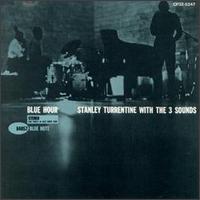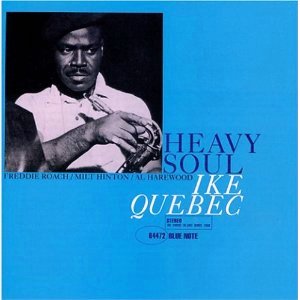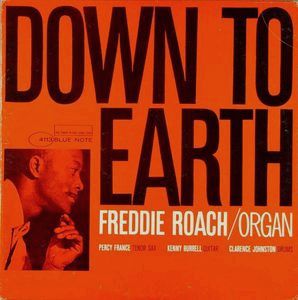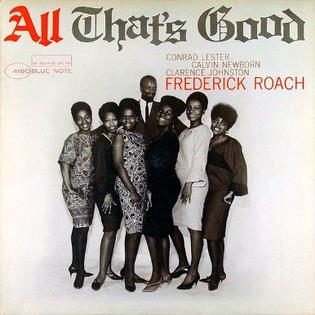Frederick Roach was an American soul jazz Hammond B3 organist born in The Bronx, New York, United States. Roach's first commercial recordings were with saxophonist Ike Quebec for Blue Note Records in the fall of 1961. These sessions produced Quebec's albums Heavy Soul and It Might as Well Be Spring. In March of 1962, Roach recorded as a backing musician for the Thunderbird album by Willis Jackson. From 1962-64, Roach recorded 5 albums as a leader for Blue Note, and also recorded with Donald Byrd on the album I'm Tryin' to Get Home. Roach's original writing, steady basslines, and highly musical fleet-fingered right hand set him apart. From 1966-67 he recorded three more albums as a leader for Prestige Records, which are in a more commercial vein than his Blue Note dates. Roach's Prestige albums were his last commercial recordings.

See You at the Fair is an album by jazz saxophonist Ben Webster, released by Impulse! Records.

Sunny Side Up is an album by jazz saxophonist Lou Donaldson recorded for the Blue Note label and performed by Donaldson with Bill Hardman, Horace Parlan, Sam Jones, Al Harewood, with Laymon Jackson replacing Jones on four tracks.

The Natural Soul is an album by jazz saxophonist Lou Donaldson recorded for the Blue Note label in 1962 and performed by Donaldson with Grant Green, Tommy Turrentine, Big John Patton, and Ben Dixon.

Blue Hour is a collaboration album by jazz saxophonist Stanley Turrentine and The Three Sounds recorded for the Blue Note label and performed by Turrentine with Gene Harris, Andrew Simpkins and Bill Dowdy. The album was reissued in 2000 with an additional disc of unreleased recordings, as Blue Hour: The Complete Sessions.

Easy Walker is an album by jazz saxophonist Stanley Turrentine recorded for the Blue Note label in 1966 and performed by Turrentine with McCoy Tyner, Bob Cranshaw and Mickey Roker. One additional track from an unreleased session arranged by Duke Pearson was added to the original CD release and another four bonus tracks recorded in 1969 and originally released on Ain't No Way were added to the 1997 CD reissue.

Here We Come is an album by jazz group The Three Sounds, featuring performances recorded in 1960 and released on the Blue Note label.

The Opener is an album by American jazz trombonist Curtis Fuller, recorded on June 16, 1957 and released on Blue Note later that year—his debut for the label.

Stop and Listen is the second album by American jazz organist Baby Face Willette featuring performances recorded and released on the Blue Note label in 1961. It features a version of the 1941 Harry Warren song "At Last," which at the time of the Stop and Listen recording sessions was on the R&B and Billboard Hot 100 record charts through Etta James' hit recording of the song.

Heavy Soul is the debut album by American saxophonist Ike Quebec, recorded in 1961 and released on the Blue Note label.

Down to Earth is the debut album by American organist Freddie Roach recorded in 1962 and released on the Blue Note label.

Mo' Greens Please is the second album by American organist Freddie Roach recorded in 1963 and released on the Blue Note label. It was reissued on CD only in Japan, as a limited edition.

Brown Sugar is the fourth album by American organist Freddie Roach recorded in 1964 and released on the Blue Note label.

All That's Good is the fifth album by American organist Freddie Roach recorded in 1964 and released on the Blue Note label. It was reissued on CD only in Japan, as a limited edition.

Doin' Allright is an album by American jazz saxophonist Dexter Gordon recorded in 1961 and released on the Blue Note label.

Soul Stream is the second album by American saxophonist George Braith recorded in 1963 and released on the Blue Note label.

Open House is an album by American jazz organist Jimmy Smith featuring performances recorded in 1960, but not released on the Blue Note label until 1968. The album didn't appear on CD until being reissued in 1992, as a twofer which also included Plain Talk, compiling all the recordings from the session.

Bucket! is an album by American jazz organist Jimmy Smith featuring performances recorded in 1963 but not released on the Blue Note label until 1966. The CD reissue added two tracks recorded at the same session as bonus tracks.

Live at the Lighthouse is a live album by jazz group The Three Sounds featuring performances recorded in 1967 at the Lighthouse Club in California and released on the Blue Note label.

Electric Funk is an album by the American jazz organist Jimmy McGriff of performances recorded in 1969 and released on the Blue Note label.



















